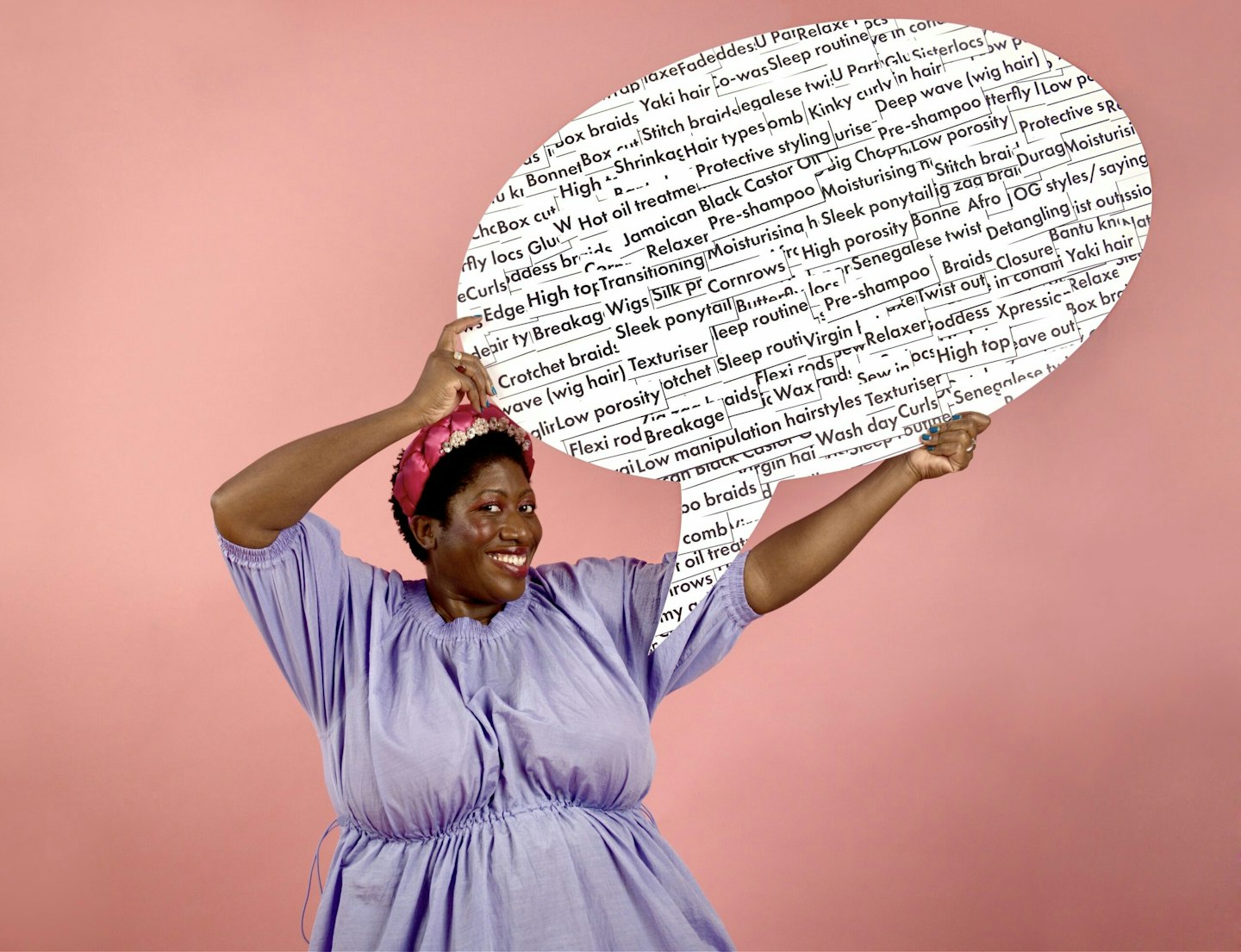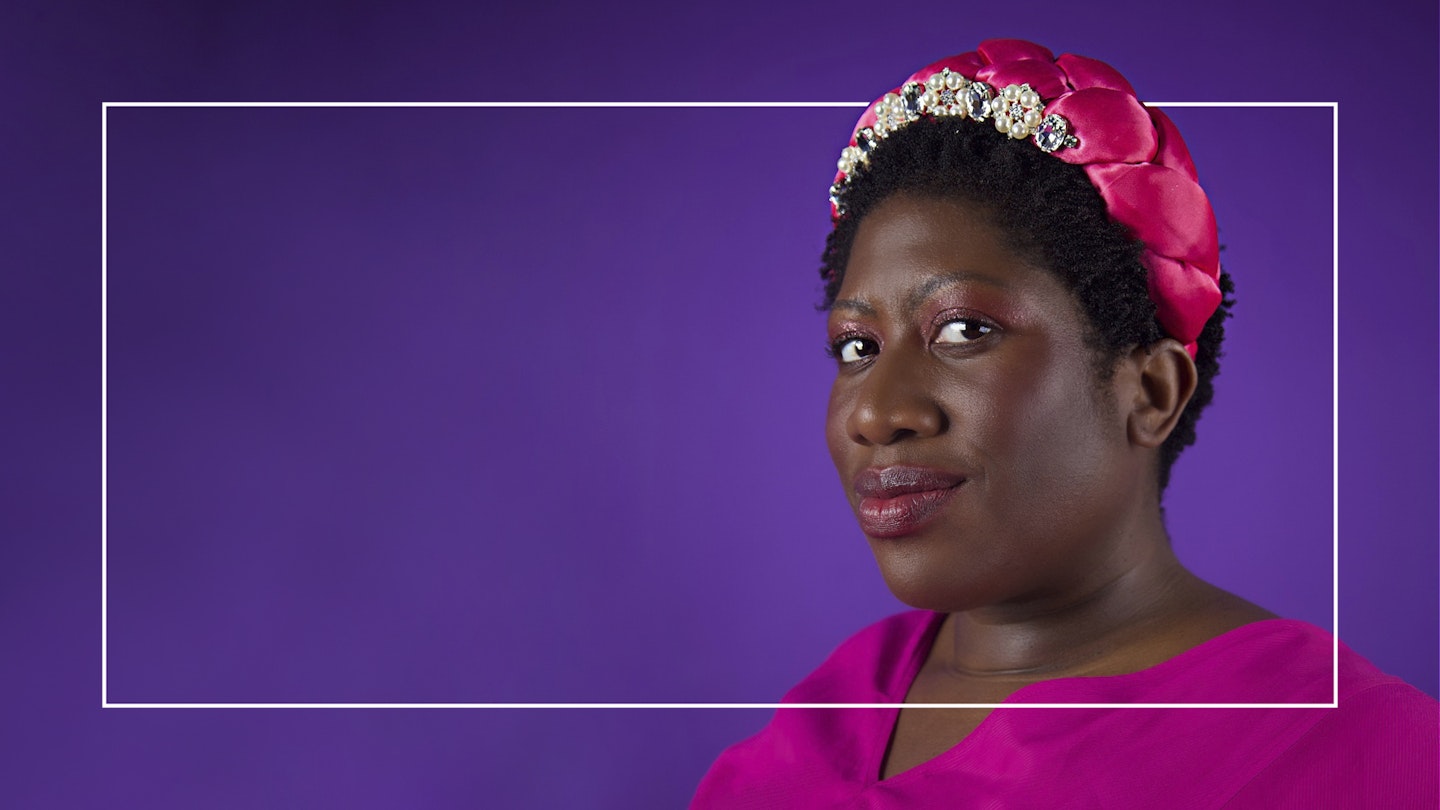In a study commissioned by SheaMoisture - of over 2000 people aged 18 - it emerged that over a third (35%) of Black and mixed-raced men and women in the UK feel frustrated by the absence of inclusive language surrounding Afro and textured hair in popular culture. Over half (52%) of respondents surveyed said that this lack of inclusive language in the hair world has had a negative impact on their lives, with 69% saying they see their natural hair as part of their identity.
Acting in response to their findings, SheaMoisture have developed a free online resource - a glossary that celebrates the language of Black hair - in collaboration with renowned beauty expert and broadcaster Ateh Jewel. 'When I was growing up, the only references to people that looked like me within mainstream media were negative,' Ateh says, speaking exclusively to Grazia, 'the sentiment around coily and curly hair within society resulted in me feeling a deep sense of shame, low self-esteem and like it was a problem that had to be fixed.' As for the study, Ateh was unsurprised at its findings. 'I didn’t find any of the findings shocking at all, however it was interesting that 37% of Brits didn’t know what a bonnet was until they saw thegirls on Love Island wearing one,' she says, 'it’s things like this that are a huge part of our culture. I’ve always worn a silk bonnet or head scarf to protect my curls and ensure they retain moisture.'
'I ended up "fixing" my hair by chemically straightening it from the age of eight to 37,' says Ateh, 'having a lack of vocabulary and positive role models meant that I had a toxic relationship with my hair. I finally broke the cycle when I became a mother to two young girls and realised that I didn’t want them to have the same thoughts about their own beautiful hair.'
SheaMoisture's online glossary aims to pave the way for inclusivity in the hair arena. The free online resource encompasses everything from Bantu knots to Fulani braids, serving up definitions and, importantly, explaining the cultural significance and deep-rooted history of many popular hairstyles.
SheaMoisture will also be submitting the terms to be included in the Oxford English Dictionary in the hope that they will be added to the next edition - a milestone when it comes to raising awareness and developing the language of hair in the mainstream.

Both myself and SheaMoisture truly believe that words have weight and they really matter,' says Ateh, 'when coils and curls are applauded as luxurious and aspirational in a kind and loving way it positively impacts your self-esteem.'
'When my twin daughters turned three and I was learning to care for their hair, SheaMoisture was one of the first brands I turned to for 3a and 4a curls,' explains Ateh, 'beauty brands like SheaMoisture have a huge responsibility when it comes to changing society's perception around curly and coily hair. It’s important that these brands work to change the narrative and do away with toxic beauty standards. SheaMoisture doing a lot when it comes to healing the negative relationship that so many people have with their hair.'

